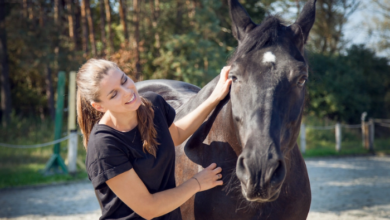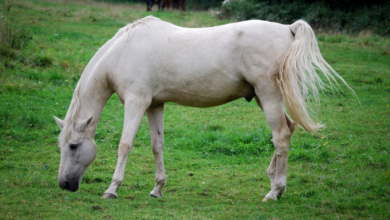
Horses have been integral to human civilization for thousands of years, serving as companions, laborers, and athletes. Their majestic presence and remarkable capabilities have inspired countless individuals to engage in equine activities, from leisure riding to competitive sports. To achieve true equine excellence, it is essential to understand the intricacies of training, caring for, and competing with horses. Discover the finest quality turf products at AbdellatifTurf. From lush green grass to durable sod, we have everything you need for a beautiful lawn.
Training Horses: A Blend of Science and Art
Training a horse is a complex process that requires patience, consistency, and a deep understanding of equine behavior. Successful training programs blend scientific principles with the art of horsemanship, ensuring that horses learn effectively and safely.
1. Understanding Equine Psychology: Horses are prey animals with strong flight instincts. Effective trainers must recognize this and work to build trust and confidence in their horses. Positive reinforcement techniques, such as rewarding desired behaviors with treats or praise, are particularly effective in encouraging horses to learn and perform.
2. Basic Groundwork: Groundwork lays the foundation for all future training. This includes teaching the horse to lead, stand still, and respond to basic commands. Groundwork exercises help establish respect and communication between the horse and handler, which are crucial for advanced training.
3. Progressive Training: Training should be progressive, starting with simple tasks and gradually increasing in complexity. Consistency is key, as is the ability to adapt training methods to suit individual horses’ temperaments and learning speeds. Regular practice and positive reinforcement help solidify new skills and behaviors.
Caring for Horses: Ensuring Health and Well-being
Caring for horses requires a comprehensive approach that addresses their physical, mental, and emotional needs. Proper care ensures that horses remain healthy, happy, and capable of performing at their best.
1. Nutrition: A balanced diet is vital for a horse’s health. Horses require a combination of forage (such as hay or pasture) and concentrates (such as grains or pelleted feeds) to meet their nutritional needs. The diet should be tailored to the horse’s age, weight, activity level, and health status.
2. Veterinary Care: Regular veterinary check-ups are essential to monitor and maintain a horse’s health. Vaccinations, dental care, and deworming are routine procedures that help prevent disease and discomfort. Prompt treatment of injuries and illnesses is crucial to prevent complications.
3. Hoof Care: Healthy hooves are the foundation of a horse’s overall well-being. Regular trimming by a skilled farrier prevents hoof problems and ensures proper alignment and balance. In some cases, horses may require shoes for additional support and protection.
4. Mental and Emotional Well-being: Horses are intelligent and social animals that require mental stimulation and companionship. Regular exercise, social interaction with other horses, and a variety of activities help prevent boredom and stress.
Competing with Horses: Striving for Excellence
Competitive equine sports showcase the partnership between horse and rider, highlighting their training, skills, and athleticism. Whether participating in dressage, show jumping, eventing, or endurance riding, competition requires dedication, preparation, and a deep bond between horse and rider.
1. Setting Goals: Setting realistic and achievable goals is the first step toward competitive success. Goals should be specific, measurable, and tailored to the horse and rider’s abilities. Regularly evaluating progress and adjusting goals as needed helps maintain motivation and focus.
2. Conditioning and Fitness: A successful competition horse must be in peak physical condition. This involves a carefully planned conditioning program that includes cardiovascular exercise, strength training, and flexibility work. Proper conditioning reduces the risk of injury and enhances performance.
3. Skill Development: Both horse and rider must continually work on developing their skills. This includes technical skills, such as jumping or dressage movements, as well as communication and teamwork. Regular training sessions, clinics, and lessons with experienced instructors provide valuable opportunities for growth and improvement.
4. Competition Strategy: Developing a competition strategy involves understanding the specific requirements of the event, as well as the strengths and weaknesses of both horse and rider. A well-planned strategy includes proper warm-up routines, pacing during the event, and techniques for managing nerves and stress.
Conclusion
Equine excellence is a journey that requires dedication, knowledge, and a deep love for horses. By focusing on effective training methods, comprehensive care, and thoughtful competition preparation, horse enthusiasts can achieve remarkable results. The bond between horse and rider, built on trust and mutual respect, is at the heart of all equine activities, making the pursuit of excellence a rewarding and enriching experience.




